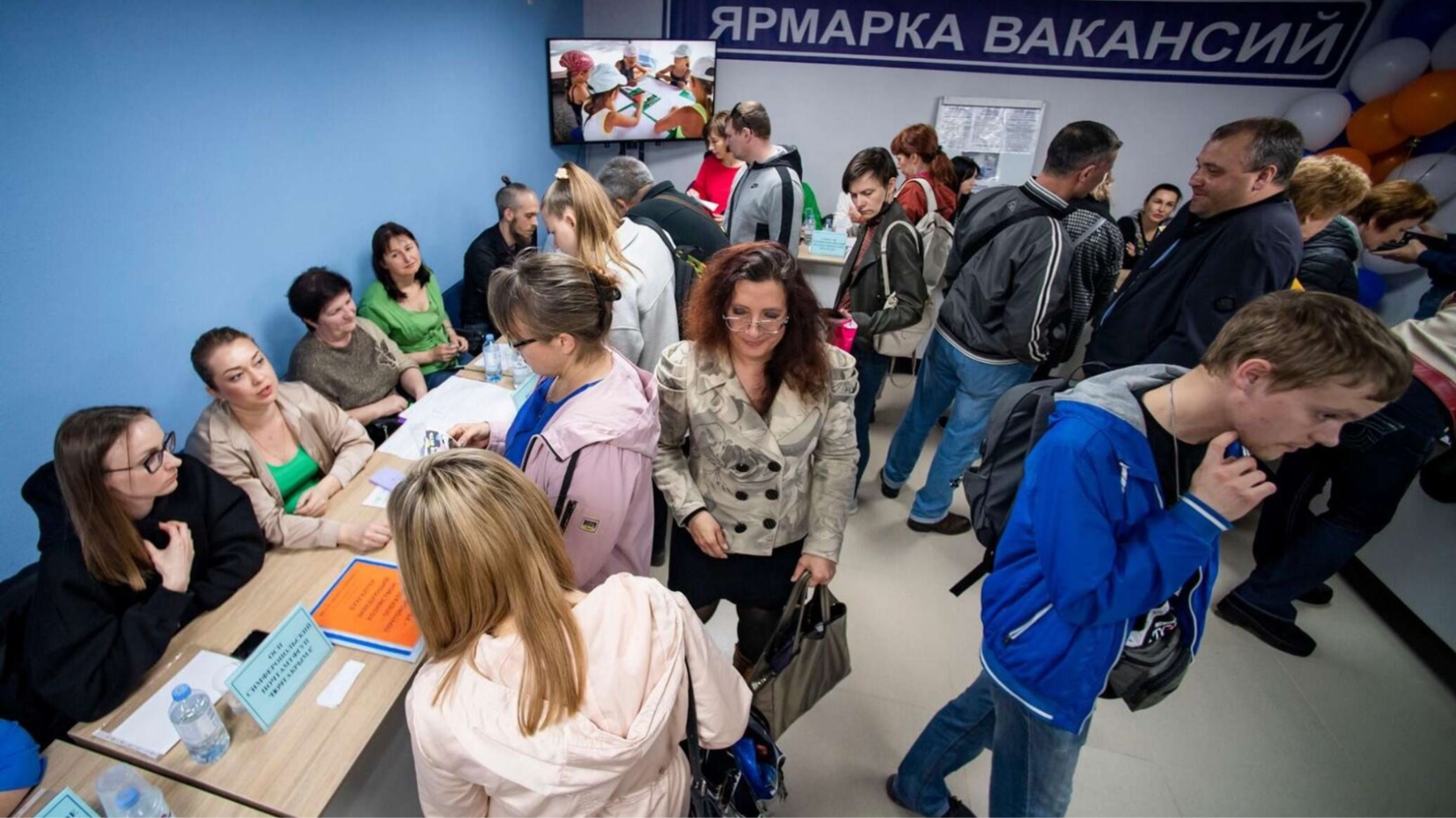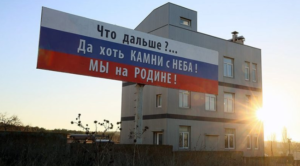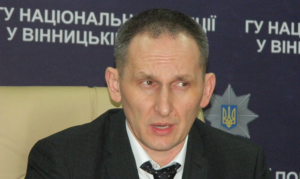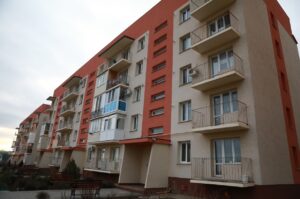Occupied Crimea suffers from growing labor shortage. It covers all branches and spheres: health care, education, construction, tourist, industry, agriculture and even Russian occupation authorities and law enforcement bodies. For example, graduate from the Russian “Academy of prosecutors” Olga Vladimirovna Rastrigina has been recently appointed as the “acting Minister of Health Care” of occupied Crimea.

Olga Rastrigina. Photo: RIA Novosti
It is the second appointment of Rastrigina as the Crimean “minister”. In autumn 2021, she has spent three weeks as acting minister of health care. She has been replaced by Kostyantyn Skorupsky. He has been recently dismissed because he failed to deliver drugs for socially vulnerable groups. Skorupsky received university training in the health care. Rastrigina does not have any education background in the sphere of health care.
She received two university diplomas – as financial manager and a lawyer. Before Russian annexation of Crimea in 2014, she has worked in Crimean banks. In 2014, she has been appointed as deputy chief doctor on economic issues in Simferopol hospital # 3 and then – in Republican hospital named after Semashko.
After Russian annexation she graduated as a lawyer from the Academy of the General Prosecutor’s Office of the Russian Federation in Moscow. Up to 2019, she held managerial positions in “Territorial Fund of Mandatory Health Care Insurance of the Republic of Crimea”. Then, she has been appointed as “Deputy Minister of Health Care”. She succeeded in defending PhD thesis in fake Russian “federal university” in Crimea.
Appointment of Rastrigina is an example of flawed HR policy of the Russian occupation authorities and increasing labor shortage. There are numerous vacancies in each Crimean “ministry”, city and raion “administrations”. As an outcome, 77 years old traitor Yukhym Fiks still holds the position of the “deputy speaker of Crimean State Council”.

Yukhym Fiks. Photo: rus.team
There is already acute labor shortage in health care institutions. There are long queues in hospitals. Family doctors have queues for two weeks. Crimean “emergency” lacks one third of personnel.
According to “Head of Crimea” Aksyonov, there are 2 300 vacancies in the Crimean health care system (doctors, drivers, nurses, attendants). It is remarkable that he told about shortage of 1,5 thousand people only two months ago.
The website of the Crimean “Ministry of Health Care” presents almost 800 vacancies. For example, Simferopol hospital # 7, servicing large district of Crimean capital, lacks 60 specialists. Excessive work load, low salaries and cumbersome working procedures are main disincentives for employment in state owned hospitals.
Crimean occupation “government” tries to offer incentives like reimbursement for leased houses and municipal services and even one million Rubles for doctors to work in villages. However, this package does not work well.

Emergency hospital in occupied Simferopol. Photo: press service of “the Ministry of Health Care of the Republic of Crimea”
The same situation is observed in the sphere of education. The shortage of teachers has increased by three times during last three years in Crimea. Crimean schools lack over 2 thousand teachers. The most demanded are teachers of junior classes, mathematics, physics, history and even Russian language.
“Five teachers left our school after the end of this school year, as tells mother of pupil in Simferopol school. – My daughter entered the 5th class but there are not enough teachers. In junior school, teachers of English and physical culture changed almost each half a year. There was no teacher of physical culture during one quarter! There are not enough teachers of junior classes. Before there were two junior classes but now there are five junior classes! Many teachers work as pedagogical curators in two classes at the same time”.
Educational institutions are overloaded and work in two shifts.

Photo: newizv.ru
Recent university graduates are unwilling to work in schools. They are discouraged by stressful work, low salaries and paper work. Many graduates have to be re-trained as the quality of university education has drastically fallen after the Russian annexation of Crimea.
Russian authorities decided to employ former participants of the Russian “special military operation” in Ukraine as teachers. They propose them to upgrade their professional qualification and work as teachers of physical culture and initial military training.
The labor shortage in the tourist industry of Crimea reaches 200 thousand people, as reported Sergii Makovei, the Head of Crimean hotel organization.
“Today we lack approximately 200 thousand people. When there is high tourist season, we are not able to cope. We need students, young people”, as told Makovei.
Tourist industry needs cooks, waiters, animation guides, lifeguards, plumbers and drivers in children’s camps and hotels. Low salaries and military risks do not encourage potential workers as Russian occupants turned the Crimean sea shore into a series of military objects, targets for Ukrainian hits.

Explosions at the air base of the Russian Federation in Novofedorovka in occupied Crimea, 09.08.2022. Photo: social media
Crimea has suffered from the shortage of construction workers for years. Russian occupation authorities estimated that construction industry needed 10-20 thousand employees. After the Russian full scale invasion into Ukraine, the shortage has increased by many times. Many people were conscripted. Many people left the Crimean peninsula, trying to avoid mandatory conscription.
The exchange rate of Russian Ruble fell down and, as an outcome, it became unprofitable for labor migrants from Uzbekistan, Tajikistan and Kyrgyzstan to work in Russia and occupied Crimea.
“Renewal” of Ukrainian territories, destroyed and occupied by Russia, attracted a lot of Crimean residents as they are proposed salaries three times higher than in Crimea. Many residents work in the “shadow sector”.

Residential complex “Zhygulina rosha” in Simferopol. Photo: ndnews.ru
The same reasons explain labor shortage at Crimean factories and enterprises. Electricians, plumbers, fitters etc. prefer working informally or outside Crimea.
Crimean agriculture needs seasonal and permanent workers – truck drivers, veterinaries, agronomists etc. Young people leave villages and majority of workers in agricultural enterprises are pensioners.
Russian occupation “Ministry of Internal Affairs” in Crimea also suffers from the labor shortage. After Russian full scale invasion into Ukraine, policemen have been dispatched to occupied territories in Zaporizhzhia and Kherson regions. Many policemen left the service as they were afraid of being sent to the front.
Russian occupation authorities also lack road policemen and investigators. They softened employment conditions for police and introduced an attractive package of additional services and benefits for future policemen. However, it does not work well as people are afraid of being sent to the front.
Tags: Crimea, doctors, labor shortage, occupants, teachers, Council of Ministries of Crimea, construction workers, job fair







